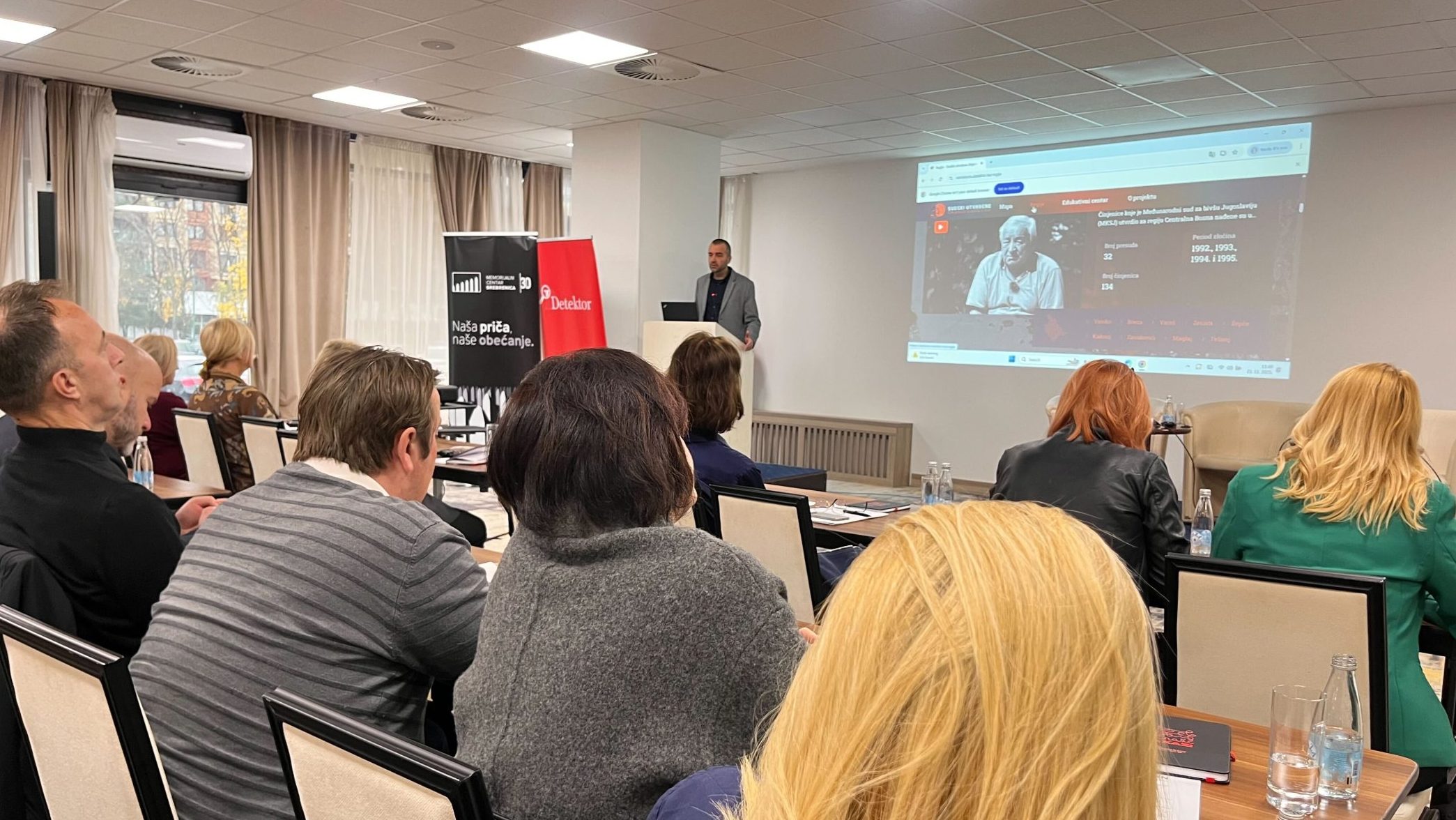This post is also available in: Bosnian
Mladic, the wartime commander of the Bosnian Serb Army, has been charged with terrorizing civilians in Sarajevo through a sustained campaign of shelling and sniper attacks. According to the indictment, Bosnian Serb positions were responsible for the mortar that exploded in the Markale Market on February 5, 1994, killing 66 civilians and wounding 140 more.
Sergey Moroz, an engineering officer with UNPROFOR at the time, said a Russian colonel named Nikolai Rumyantsev, since deceased, was involved in the investigation and told him the attack was caused by a “special explosive device” activated on the ground.
Moroz said that after the attack he visited the Markale Market and said a mortar attack was improbable because of the “unusual projectile trajectory,” which would have been too close to a nearby residential skyscraper.
Moroz said that during his one year of service in Sarajevo, he heard mortars fired by the Bosnian Army in the vicinity of the UNPROFOR command in the PTT building, which then instigated counterattacks from the Bosnian Serb side.
Moroz said water and electricity cuts in Sarajevo were caused by the Bosnian Army shelling water sources, pumps and substations in Ilidza.
During cross-examination, the prosecution presented Moroz with an UNPROFOR report on the Markale Market explosion, signed by officer Nikolai Rumyantsev. The report concluded that “a mortar shell detonated upon impact on the ground” and also established the possible trajectory.
Moroz said he had never seen the report and that Rumyantsev “said what he said” to him.
In response to questions from the prosecution, Moroz confirmed that he had no specialized training in ballistics, explosives or the analysis of shell craters.
Moroz said he didn’t know the exact path a mortar shell would have to take to hit the Markale Market.
The prosecution argued that Bosnian Serb leaders blocked Sarajevo’s supplies of water, gas and electricity in order to put pressure on the government. Moroz stuck to his statement that there was enough water, but that it couldn’t always be distributed by the water supply system. He accepted that civilians were in danger when they walked through the city to collect water from cisterns and springs.
The trial will continue on December 14. Mladic has also been charged with genocide in Srebrenica, the persecution of Bosniaks and Croats across Bosnia and Herzegovina (which reached the scale of genocide in six municipalities, and taking UN peacekeepers hostage.

